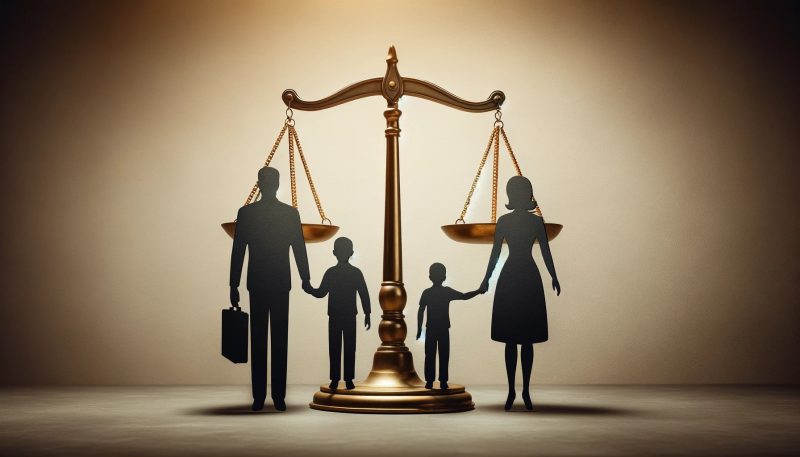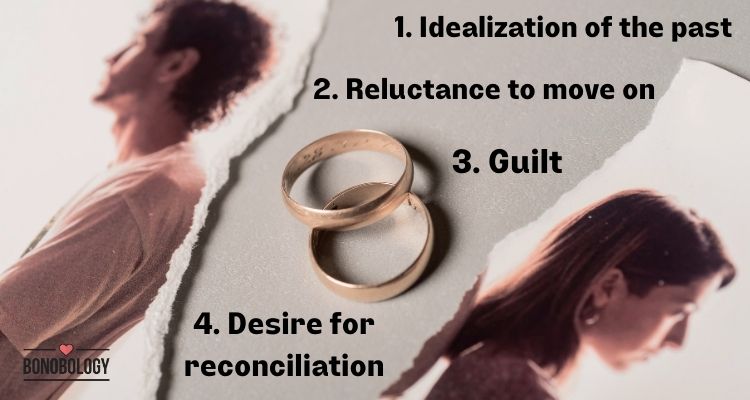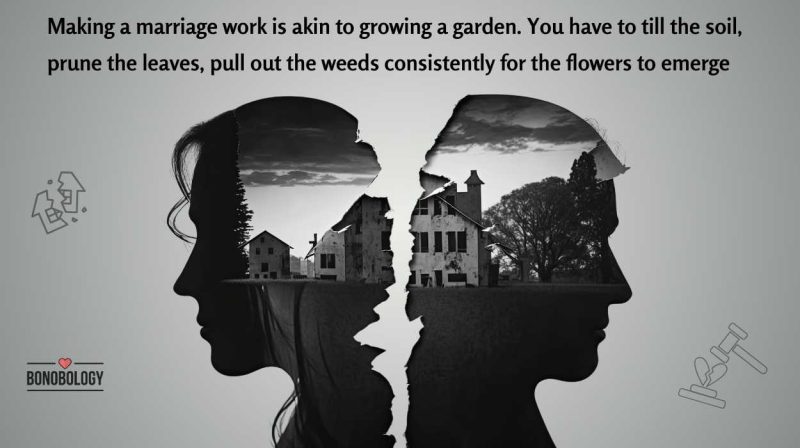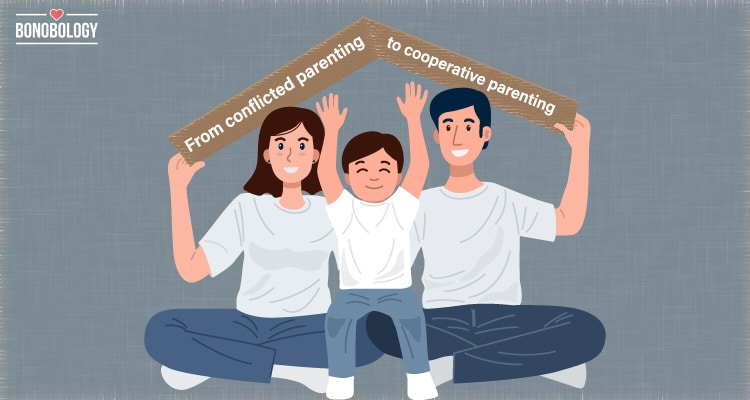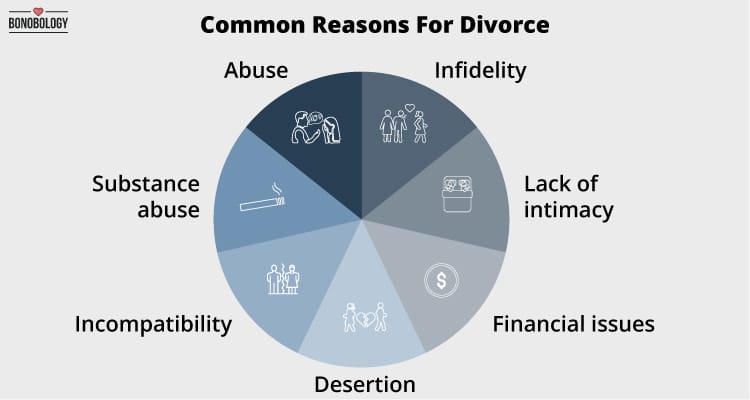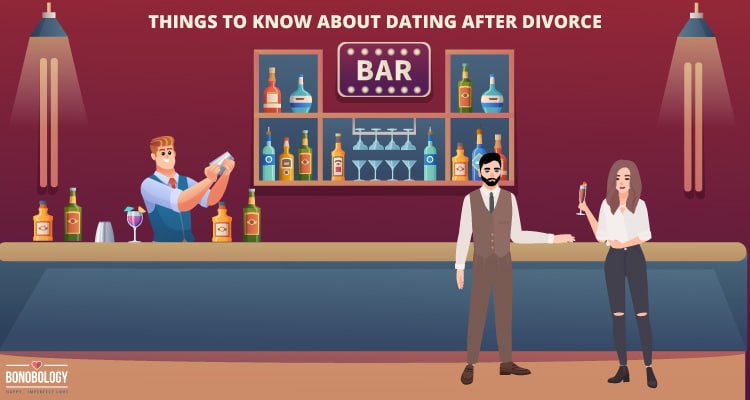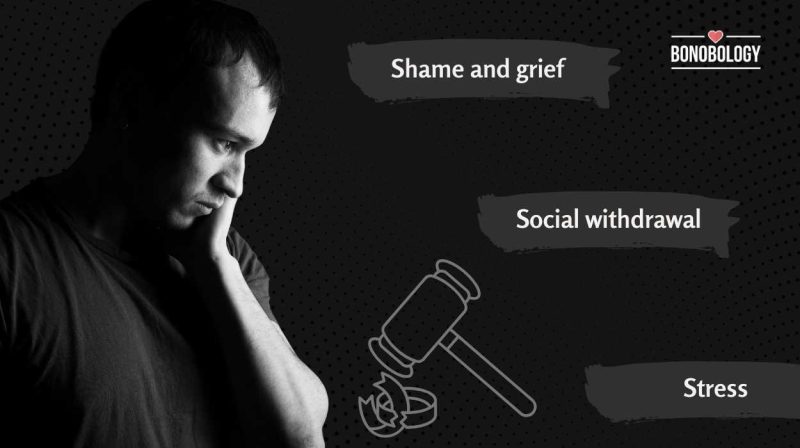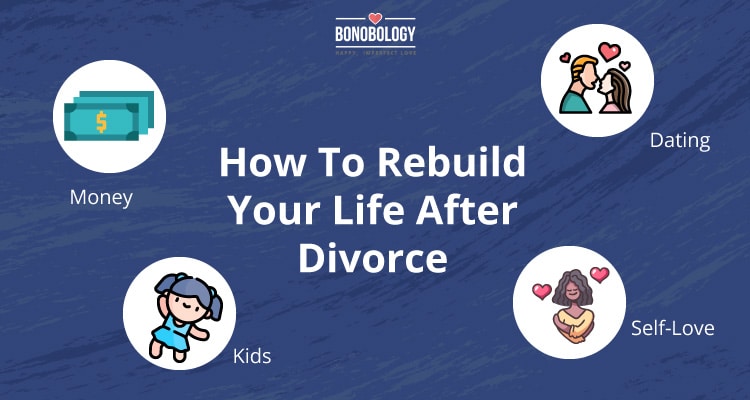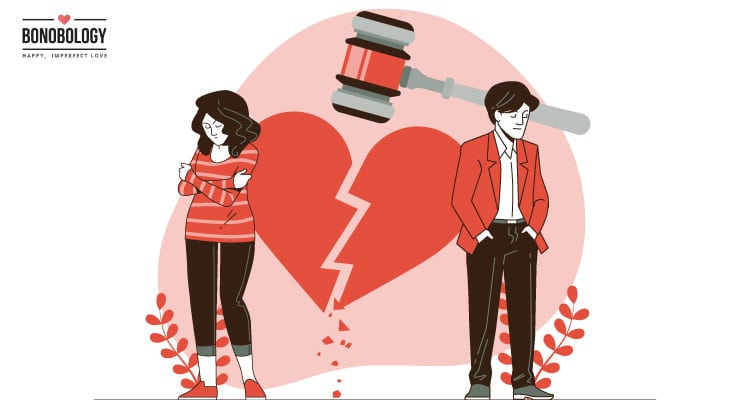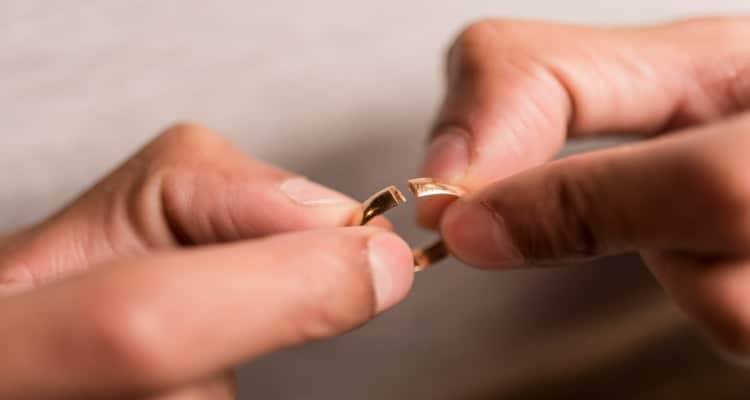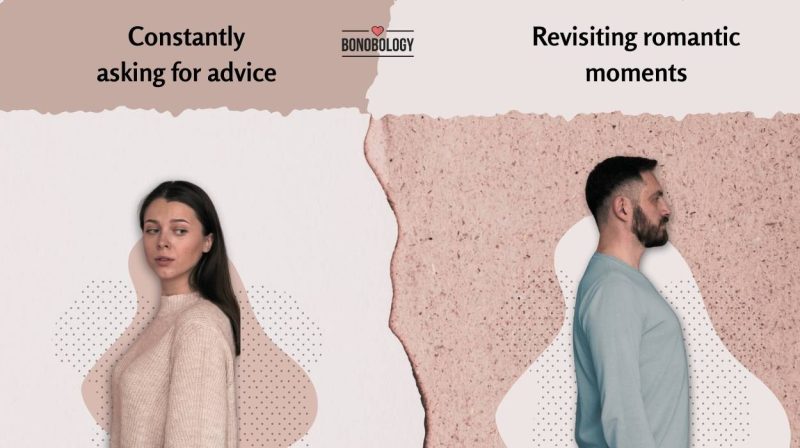From the time when the D word first strikes your mind to long after you are legally separated from your spouse, the effects of divorce never vanish from one’s life. Be it the heartbreak or the division of property, child custody, or your broken self-esteem, you wish there was someone who could guide you through it all. That’s where divorce counseling steps into the picture heroically.
From finding the root cause of animosity in your relationship to planning for separation, divorce advice from a therapist can be your best bet. But when divorce therapy is brought in during a marital crisis, couples may have some apprehensions. Such as:
- Will the divorce counselor push for a divorce? Is that the only option?
- What exactly happens in divorce counseling?
- What can one expect from divorce therapy?
- How is divorce counseling different from marriage counseling?
- How is pre divorce counseling different from post divorce counseling?
To help you find the answers to these questions and understand the benefits of pre- and post-divorce counseling, we spoke to psychologist Shazia Saleem (Masters in Psychology), who specializes in separation and divorce counseling. Let us look at what she had to say.
What Is Divorce Counseling?
Table of Contents
Before we understand the benefits of divorce counseling, it’s important to be on the same page about what exactly you comprehend from the term. Divorce therapy, separation counseling, or any other form of divorce counseling for that matter, aims to give you the skills and confidence needed to tackle the problems that accompany the prospect of divorce. Divorce therapy gives you the necessary support to be able to deal with different stages of divorce and the changes that happen around you.
This type of specialized counseling is a comparatively newer form of therapy. Earlier, a marriage counselor usually offered divorce counseling. But now, you can work with a divorce counselor, who specializes in this area. The most common methods of therapy used are Cognitive Behavior Therapy or Emotion-Focused Therapy, and counselors may offer couples counseling or individual therapy to help achieve the desired results.
It’s important to note that divorce counseling is a dynamic process and it is difficult to highlight where pre-divorce counseling ends and post-divorce counseling begins. Besides, it’s a process that can begin way before the divorce, with trying to understand the reason for the conflicts in your marriage. And it may continue for a considerable amount of time after the divorce, to help people navigate sharing custody of kids or learn to find love again.
Related Reading: Life After Divorce – 15 Ways To Build It From Scratch And Start Afresh
What to expect from divorce counseling
The point of pre-divorce counseling is not to persuade you out of divorce; it is to help you both understand what’s best for you individually and as a couple. Shazia says that counseling can help couples achieve clarity, “Counseling sessions begin with counselors trying to help you figure out whether there is something salvageable in the relationship. Once that aspect is handled and it emerges that parting ways is the right choice for the couple, the aim of therapy is to make the divorce process easier.”
From a legal standpoint, Tahini Bhushan, an advocate at the Supreme Court of India, who specializes in matrimonial law and domestic violence cases, tells us, “In cases where there’s been no violence, court mediation counselors can help certify if the marriage is broken beyond repair or not. By meeting with both partners separately and together, they can even help the couple reach common grounds on the multiple technicalities associated with a divorce.”
Plainly speaking, you can expect more clarity through divorce counseling on the following fronts:
- Need for divorce: You will know whether divorce is your only possible recourse
- Reasons for divorce: You will have more clarity on why you are going through this process, which works like an anchor
- Divorce process: You will have a clearer idea of how to get a divorce and what the legalities will look like
- Co-parenting rules: You will know how to handle joint custody of your children to cause the least shock to them and to give them a cooperative shared parenting experience
- Moving on after divorce: You will have guidance on divorce recovery, which includes how to get over your ex, focus on mental health, preparing up to date again and finding love, re-stabilizing your finances after your divorce, etc
How can a divorce counselor help?
Much like therapy in other situations, a divorce counselor can give you the support people often need in difficult circumstances. When an unbiased third party is approached for help to understand the conflicts in a marriage, they’ll make sure that they analyze your patterns without any biases and predispositions. Shazia says, “A counselor can be the non-judgmental and neutral party one needs during this time, unlike family members who will inevitably have personal biases.”
Broadly, the two main ways in which a divorce counselor can help are either by helping a couple decide on the best course of action or by helping them deal with the stages of divorce. A divorce counselor in the pre-divorce and post-divorce stages does the following:
| In Pre-Divorce Counseling Stage, A Counselor… | In Post-Divorce Counseling Stage, A Counselor… |
| Points out the negative patterns in your behavior | Helps the couple understand the changes that come with divorce |
| Helps identify the trigger points in your marriage | Helps the couple with the right tools to handle life after divorce |
| Helps ascertain the cause of your arguments and the conflict | Improves communication between ex-spouses for handling things like shared custody of kids |
| Helps makes sure if divorce is the best solution to your marital problems | Helps a divorced individual transition to single life |
| Helps the couple have a clear plan for divorce | Equips couples with conflict resolution tactics to deal with essential after-divorce formalities |
| Helps prepare a divorce checklist that includes a plan for co-parenting and a legally fair split of finances | Helps them deal with emotional flooding and divorce grief, namely, anxiety, stress, sadness, or other negative emotions |
We will like to underline here that divorce counselors will never push the couple to opt or not opt for a divorce. They will only help you gain perspective on your issues so that you know what is the right course of action. Given just how stressful divorce tends to be, having some professional guidance from someone who has seen it before will only do you good.
The Benefits Of Pre-Divorce Counseling
In cases with no history of violence, pre-divorce counseling is actually legally mandated for couples seeking to end their marriage. Some couples may opt for marriage counseling before they even think about a divorce. More often than not, this turns out to be a smart decision. When a trained professional, and more importantly an impartial third party, steps in to help you determine what’s best for you, it can help both of you tremendously. Some of the benefits of pre-divorce counseling are:
1. It helps you understand the root cause of your conflicts
One of the most significant benefits of going to separation counseling before your divorce is the possibility of understanding exactly what it is that’s causing a rift between you and your spouse. Many couples who resolve conflicts that come up in the process change their minds about divorce and end up getting back together, stepping into a healthier relationship.
Shazia says, “At times, factors behind the rift are not just personal. Outside factors play a role too. A good divorce counselor can help the parties figure out if there is an outsider factor, a third party, or family issues involved that are a cause for concern or if the issues lie with each other.”
2. You can be sure if you need a divorce or not
A decision as big as a divorce cannot and must not be taken hastily. Especially if one of the parties feels there’s much to be worked out in their relationship. With the help of divorce counseling for couples, you can make sure that you’re 100% on board with whatever decision you make.
If a divorce is taken while there’s still some doubt, it can make things a lot worse for both parties involved. And even when the divorce is already decided, being sure of your decision will help in the long run. Divorce counseling before actually filing for divorce can help you in this aspect, as you navigate this major change in your life.
Related Reading: Should You Get A Divorce? – Take This Divorce Checklist
3. Pre-divorce counseling helps with better communication
If yours is the type of relationship that has been on the brink of divorce for many years, there might be a significant amount of animosity and anger, which leads to inefficient communication. A civil discussion might have become a thing of the past long ago, and you may not see eye to eye on anything.
In such cases, divorce therapists will help you establish better communication with your partner by equipping you with better communication skills and strategies. Shazia says, “When couples are allowed to speak whatever they feel, whatever they have gone through, it makes each partner feel heard. This helps give them a better understanding of what’s going on with them. This is crucial before communication even begins.”
If you’re currently struggling with a similar dynamic and are looking for divorce counseling, Bonobology has a multitude of experienced therapists who also specialize in online therapy and can help you get through this difficult time in your life.

4. Better planning for divorce
Even the most consensual divorce is bound to encounter some roadblocks along the way. Often, the two parties may not consult each other and make decisions solely in consultation with their divorce lawyers. With pre-divorce counseling, people can better plan out things so that the process doesn’t turn ugly. Since there are a lot of legal aspects involved in a divorce, learning how to get a divorce is one of the biggest benefits of this type of counseling.
Better planning also aids in a quicker and less stressful divorce. Tahini explains how. “A contested divorce can easily last for 5, or even 10 years. If a counselor can convince both parties to put their issues aside to fast-track the divorce, a mutual divorce can be done in just six months,” she says.
5. Family divorce counseling can benefit the children
It comes as no surprise that divorce is hard on the children, and perhaps, with a bit of divorce counseling, parents may be encouraged to make things better for them. Divorce counseling for families that have children in the mix can help both the children and the parents go through the entire process more easily.
Parents may learn how to talk to their kids about the divorce as well as how to help the kids transition to two households, and in some cases, adjust to blended families. Other than counseling, this study advises that children going through a parental divorce should have the opportunity to discuss their experience with a peer group in a supervised support group setting.

The Benefits Of Post-Divorce Therapy
Once an informed and civil decision has been made to opt for a divorce, divorce counseling can still help you in numerous ways. The process of separation and divorce doesn’t just end when you’re both already divorced on paper. The obligations and personal or familial struggles can go on much longer. Post-divorce counseling is a very viable tool to help people get accustomed to this new way of life they might find overwhelming in the beginning. Some of the benefits of post-divorce counseling include:
1. Individual therapy for a better quality of life
Depression is a very real risk post-divorce, and avoiding/managing it can save lives. Once the divorce is final, you might feel depressed, hopeless, and stressed. Post-divorce counseling can help you get back up on your feet again. Through the support of a licensed professional counselor, individuals can learn to prioritize self-love and self-care, and their quality of life can improve dramatically.
Shazia agrees with the efficacy of individual post-divorce therapy, and says, “Divorce inevitably causes “hurt” to both the parties involved no matter how amicable the divorce was. Individual counseling helps with individual healing. From how to get through a divorce to how to get over a divorce, individual therapy can support a person every step of the way.”
2. Post-divorce counseling can help handle legal issues
Alimony, living arrangements, child support, child custody, and property matters, it’s no surprise that divorce brings with it a plethora of legal aspects you need to deal with. While divorce lawyers can help you with most of them, the stress induced as a result will not be tended to by lawyers. This is where divorce counseling becomes essential – in equipping you with the emotional capacity to deal with the legal issues that must be taken care of.
Shazia says, “Finances are a core aspect of a divorce that requires continued legal assistance from a specialist. Counseling from a divorce counselor in tandem with a legal advisor can help people deal with this often stressful area, the effects of which linger on long after the divorce.”

3. Post-divorce therapy can be a a crucial aid for families
Your marriage may have ended, but your job as a parent is long-term and still requires you to be on your toes. If anything, a change in your marital status augments that responsibility manifold. Divorce affects children immensely. They may feel scared, hurt, and insecure, as their life as they knew it comes undone before their eyes. Learning how to co-parent after divorce can do wonders for your family. If you have a child with your ex-spouse, a family therapist can help you navigate the following:
- Recognizing your child’s emotional needs during this transition and equipping them with healthy coping skills
- Learning about your kids’ dynamic requirements based on their developmental age
- Dealing with any mental health issues or problems in social integration that your child may be facing due to the divorce
- Helping your child feel comfortable in the two household-one family system as well as a blended family (if that’s the case)
- Helping your child integrate into their new step-family/blended family
Related Reading: 10 Things To Do When You Are Thinking About Divorce
4. One can learn to live alone
It can come as a shock to many, just how hard it is to live alone after a divorce, especially after a long marriage. When people have been married for years or even decades, their individual personalities tend to become subservient to their identity as a couple.
Divorce counseling can help you find yourself outside of your marriage and help you transition into singlehood again. Learning to live alone is often crucial to single mothers, and therapy can be just the support they need in this difficult time, gently helping them get back on their feet, emotionally, financially, and socially.
5. Therapy can help move on after divorce
Venturing into the dating world after a divorce may feel extremely odd. Besides, the pain of a broken marriage can make a person cynical about the whole notion of love and happily-ever-afters. While a divorce therapist won’t tell you how to handle your dating life post-divorce or whether you should or shouldn’t put yourself out there, they help rebuild your sense of self-worth and confidence needed for you to try to find a new partner again.
“Our society isn’t kind to single people, and divorcees deal with far greater stigma. A lot of people need therapy to deal with all of this added pressure and negativity that comes with a divorce, it’s just that many refuse to acknowledge that they need help,” says Shazia, about how post-divorce therapy can help people deal with depression and mental health challenges
Key Pointers
- Pre-divorce counseling can help you understand the root cause of your issues, see if there’s any hope for reconciliation, or help mediate the divorce process
- Post-divorce therapy can help you move forward with confidence into your new life after divorce, deal with any negative emotions, and maintain your mental health
- Therapy can make the stages of divorce more manageable
- Divorce therapy can help children of divorce find the right guidance and support and circumvent the developmental challenges and mental illnesses often attributed to kids going through parental divorce
In the divorce process, having your friends and family members by your side is invaluable. The same holds true for support groups. But support from an unbiased third party, who specializes in the very issues you are facing, is incomparable. The benefits of divorce counseling don’t just end with making the legal process easier, they help you manage stress, anxiety, anger, and any other overwhelming emotions you may have. Separation counseling helps couples make sure they can avoid a pointlessly ugly divorce and a stressful life thereafter. Coming out of a divorce bruised and battered is not the only recourse available to you.
This article has been updated in March 2023.
FAQs
A good divorce counselor can help make the process of divorce a lot smoother. They can help with establishing clear communication with your spouse and help you get back on your feet after your divorce. Divorce counselors will assist you with dealing with the stress and emotions that are part and parcel of the divorce.
Yes, the benefits of pre-divorce counseling speak for themselves. You will be able to ascertain with complete confidence whether you really require a divorce or not. It will establish constructive communication between the partners and the planning of the divorce will be made a lot easier.
With an impending divorce, a good therapist can ascertain if a couple should really get a divorce or not. They check if there is potential for the marriage to be saved and if both partners are willing to save it. By improving communication between both partners, understanding the root cause of frustration, and working on things together, counseling really can save a marriage.
Your contribution does not constitute a charitable donation. It will allow Bonobology to continue bringing you new and up-to-date information in our pursuit of helping anyone in the world to learn how to do anything.




